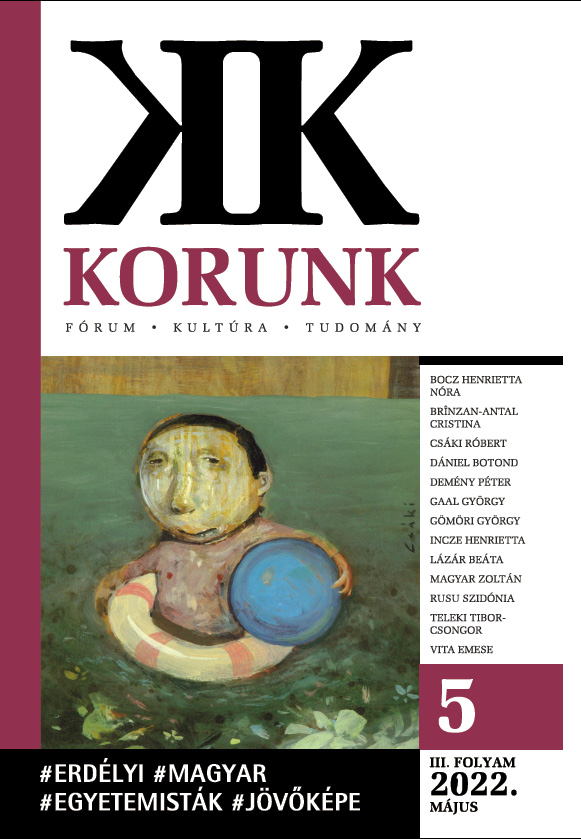A jó tanuló felel – online oktatással kapcsolatos attitűdök az erdélyi magyar egyetemisták körében
The Good Student Is Being Tested – Attitudes towards Online Education among Hungarian Students in Transylvania
Author(s): Beáta Lázár, Szidónia RusuSubject(s): Sociology of Education
Published by: Korunk Baráti Társaság
Keywords: online education; digitalisation; Hungarian students from Transylvania; online classroom activity; learning environment
Summary/Abstract: Who is a good student in online education? How has digital education changed attitudes and preferences towards learning? Have students socialised in traditional education changed under the pressure of online education? We seek to answer these and similar questions in our study. The COVID-19 pandemic has fundamentally shaken traditional forms of education and forced both students and teachers to adapt quickly and flexibly to the challenges of digital education. The present study explores this issue among Hungarian students in Transylvania. The study is based on a large sample survey of university students, conducted in December 2020. The questions on online education are organised along the following themes: learning environment, class participation, perceived changes, perceived advantages and disadvantages of digital education. The data is analysed in terms of the learning environment, the tools and conditions for online education, as well as the willingness to participate in online classes. The aim of the study is to investigate the attitudes of the students participating in the research towards online education. Along several factors such as tool use, learning environment and attitudes, students are placed on a spectrum based on their attitudes towards online education. The index classifies Hungarian students in Transylvania into categories: those who have benefited from online education – those who have performed well in the changed environment – and those who have been negatively affected by the introduction of digital education. This is examined using several background variables such as university specialisation, type of residence and socio-demographic data.
Journal: Korunk
- Issue Year: 2022
- Issue No: 05
- Page Range: 27-38
- Page Count: 12
- Language: Hungarian

